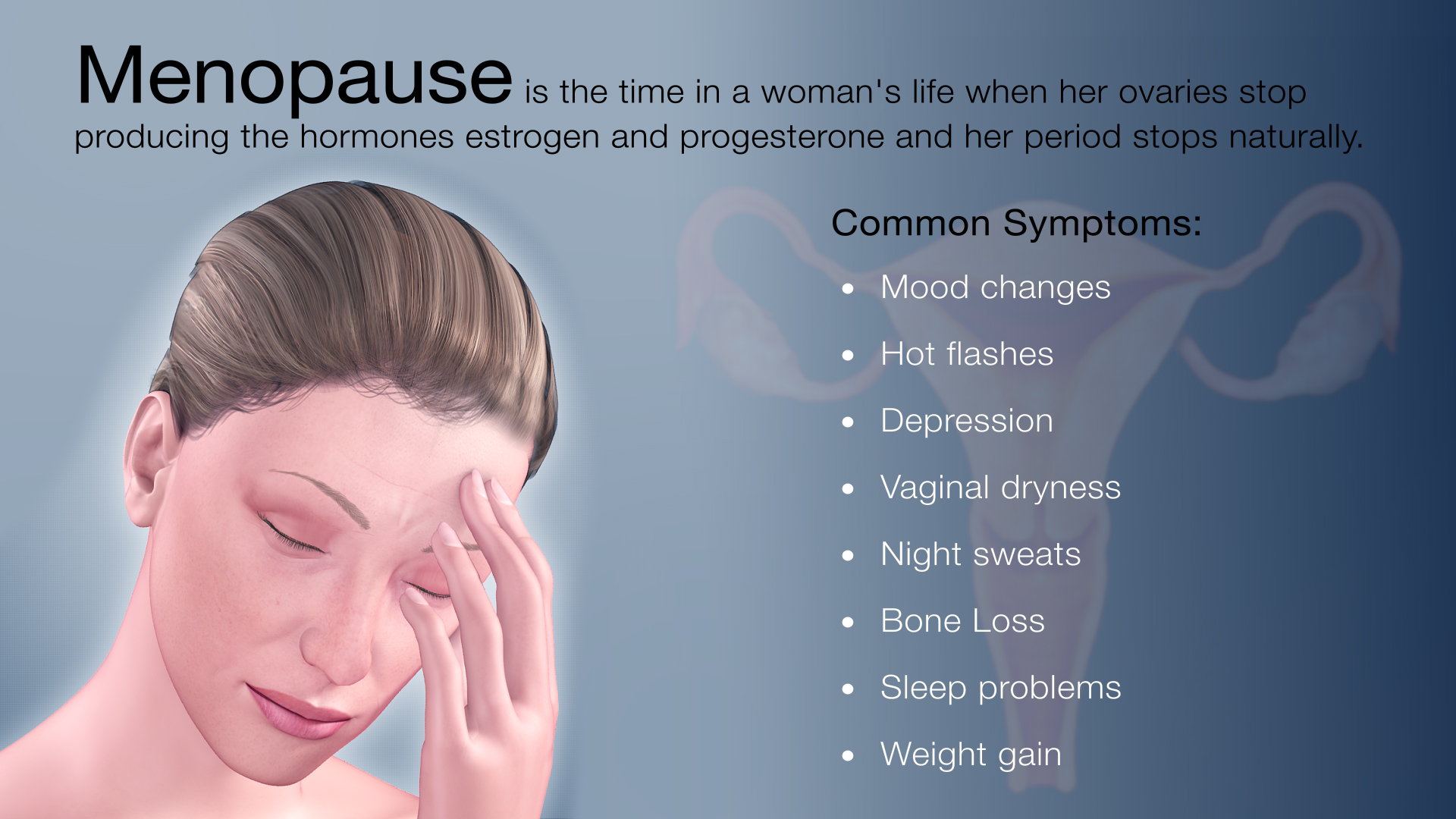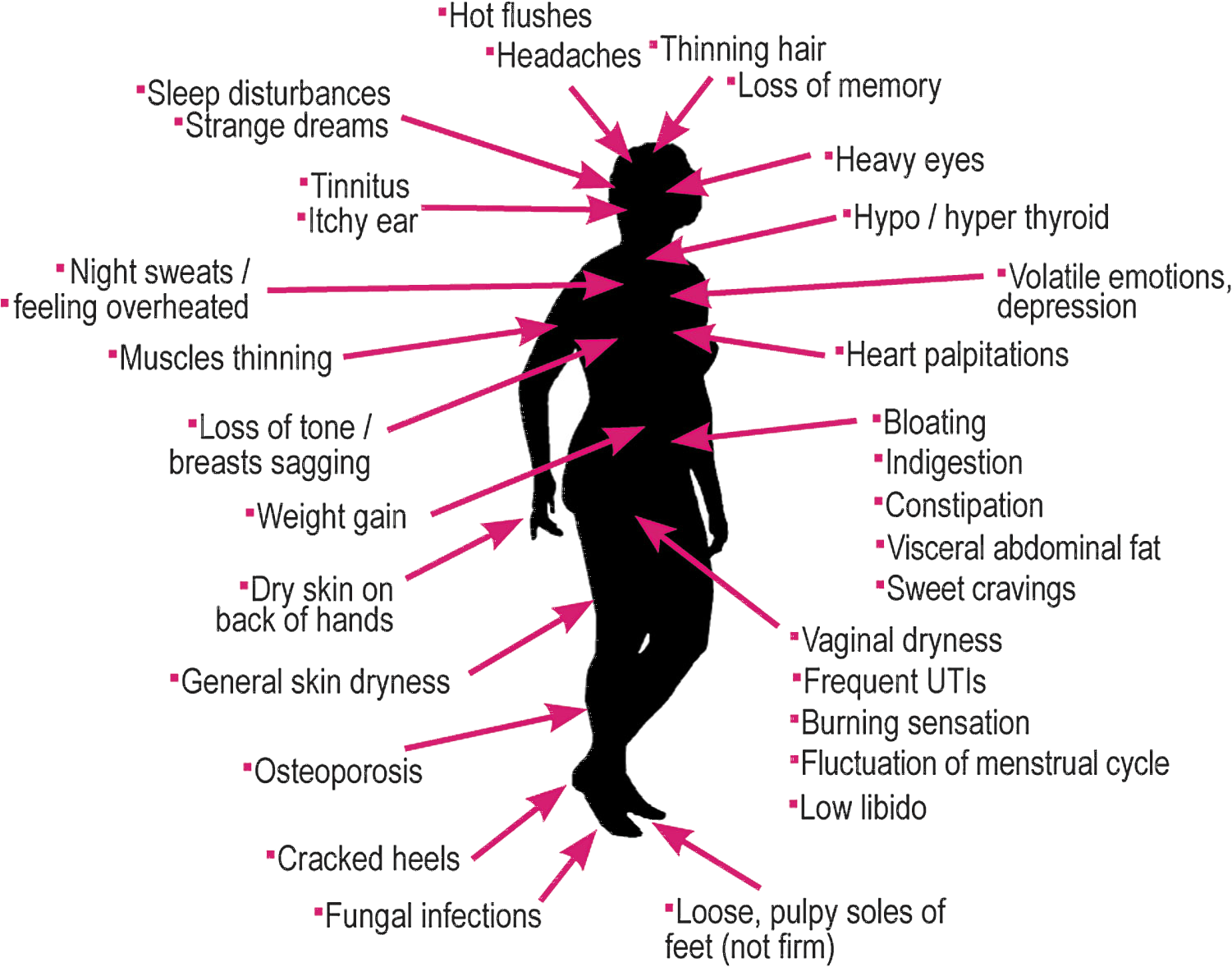Menopause, a natural transition in a woman’s life, marks the end of menstruation. While it’s commonly associated with women in their late 40s or early 50s, it can begin earlier for some. Early menopause, also known as premature menopause, brings about a unique set of symptoms that can impact physical, emotional, and cognitive well-being.
Understanding these symptoms is crucial for navigating this transition smoothly. This guide delves into the various symptoms of early menopause and provides strategies for managing them effectively.
As women enter early menopause, they may experience a range of physical symptoms, including hot flashes, night sweats, and sleep disturbances. These symptoms can be disruptive and impact daily life. Emotional changes are also common, with mood swings, irritability, and anxiety being frequently reported.
Additionally, early menopause can affect cognitive function, leading to memory lapses and difficulty concentrating.
Physical Symptoms

Menopause is a natural process that brings about significant changes in a woman’s body, and these changes can manifest in a variety of physical symptoms. Understanding these symptoms and their potential impact can help women navigate this transition more effectively.
One of the most common physical symptoms associated with early menopause is hot flashes. These sudden and intense sensations of heat can cause the face, neck, and chest to flush and perspire, and they can be accompanied by feelings of anxiety or discomfort.
Hot flashes can occur multiple times a day or even several times an hour, and they can last for several minutes or even hours.
Night sweats are another common physical symptom of early menopause. These episodes of excessive sweating typically occur during sleep, causing the bedding and nightclothes to become damp or soaked. Night sweats can disrupt sleep and contribute to fatigue and irritability.
Sleep disturbances are also prevalent during early menopause. Changes in hormone levels can affect the quality and duration of sleep, making it difficult to fall asleep, stay asleep, or achieve restful sleep. Sleep deprivation can exacerbate other menopausal symptoms, such as hot flashes and mood swings.
These physical symptoms of early menopause can significantly impact daily life, affecting work, social activities, and overall well-being. Managing these symptoms can help women improve their quality of life during this transition.
Managing Physical Symptoms
There are several strategies that women can employ to manage or alleviate the physical symptoms of early menopause:
- Lifestyle Modifications:Maintaining a healthy weight, engaging in regular exercise, and managing stress levels can help reduce the frequency and severity of hot flashes and night sweats.
- Dietary Changes:Limiting caffeine and alcohol consumption, as well as avoiding spicy foods, can help reduce the severity of hot flashes.
- Cooling Techniques:Using fans or air conditioners, taking cool showers or baths, and wearing loose, breathable clothing can help alleviate hot flashes and night sweats.
- Sleep Hygiene:Establishing a regular sleep schedule, creating a relaxing bedtime routine, and ensuring a comfortable sleep environment can improve sleep quality.
- Hormone Therapy:Hormone replacement therapy (HRT) can be an effective treatment for hot flashes, night sweats, and sleep disturbances, but it is important to discuss the potential risks and benefits with a healthcare professional.
Emotional Symptoms
Early menopause can bring about a rollercoaster of emotions. Hormonal fluctuations during this transition can lead to mood swings, irritability, and anxiety.
The decline in estrogen levels, in particular, has been linked to these emotional changes. Estrogen plays a role in regulating serotonin, a neurotransmitter that influences mood and well-being. As estrogen levels drop, serotonin production can decrease, contributing to mood swings and irritability.
Coping with Emotional Challenges
- Acknowledge and validate your feelings:Recognize that these emotional changes are a normal part of the menopausal transition.
- Engage in self-care practices:Prioritize activities that bring you joy and relaxation, such as exercise, meditation, or spending time with loved ones.
- Seek professional support:If emotional symptoms become overwhelming, consider reaching out to a therapist or counselor for support and guidance.
- Consider hormone replacement therapy (HRT):HRT can help regulate hormone levels and alleviate emotional symptoms in some women.
Cognitive Changes

As estrogen levels decline during early menopause, it can affect brain function and lead to cognitive changes. These changes may include:
- Memory lapses and difficulty concentrating
- Slower processing speed
- Reduced ability to multitask
- Difficulty finding the right words
Impact of Hormonal Changes on Brain Function
Estrogen plays a vital role in maintaining cognitive health by:
- Promoting the growth and survival of brain cells
- Improving blood flow to the brain
- Regulating neurotransmitters involved in memory and learning
Maintaining Cognitive Health
While some cognitive changes are normal during menopause, there are steps you can take to maintain cognitive health:
- Stay mentally active by engaging in stimulating activities such as reading, puzzles, and games
- Exercise regularly, as physical activity promotes blood flow to the brain
- Get enough sleep, as it is essential for memory consolidation
- Manage stress through techniques such as yoga, meditation, or spending time in nature
- Consider hormone replacement therapy (HRT) if recommended by your doctor, as it may help improve cognitive function
Lifestyle Factors

Menopause, the transition when a woman’s menstrual cycle ceases, can be influenced by various lifestyle factors. Understanding these factors and adopting healthy habits can help manage and mitigate the severity of menopausal symptoms.Maintaining a healthy lifestyle during menopause is crucial for overall well-being.
It involves incorporating balanced nutrition, regular exercise, and effective stress management into daily routines. By adopting these healthy practices, women can alleviate symptoms and improve their quality of life during this transition.
Diet
A well-balanced diet plays a significant role in managing menopausal symptoms. Certain foods and nutrients can help reduce hot flashes, improve mood, and support overall health. For instance, consuming phytoestrogen-rich foods like soybeans, tofu, and flaxseeds can mimic estrogen’s effects and alleviate symptoms.
Incorporating fruits, vegetables, and whole grains into the diet provides essential vitamins, minerals, and antioxidants that support hormonal balance and reduce inflammation.
Exercise
Regular exercise offers numerous benefits for women experiencing menopause. Engaging in moderate-intensity activities such as brisk walking, swimming, or cycling can reduce hot flashes, improve sleep quality, and boost mood. Exercise helps regulate body temperature, promotes endorphin release, and supports cardiovascular health, all of which contribute to symptom management.
Stress Management
Stress can exacerbate menopausal symptoms, making it essential to prioritize stress management techniques. Incorporating relaxation exercises like yoga, meditation, or deep breathing into daily routines can help reduce stress levels and alleviate symptoms such as anxiety and irritability. Engaging in activities that bring joy and relaxation, such as spending time in nature or pursuing hobbies, can also contribute to stress reduction.
Medical Management
Menopause is a natural process that can bring about a range of symptoms. Medical treatments are available to help manage these symptoms and improve quality of life during this transition.
Hormone Therapy
Hormone therapy (HT) is a common treatment option for menopausal symptoms. It involves taking synthetic hormones, such as estrogen and progesterone, to replace the hormones that the body stops producing during menopause. HT can effectively relieve symptoms such as hot flashes, night sweats, and vaginal dryness.
However, it may also carry risks, including an increased risk of blood clots, stroke, and breast cancer. The decision to undergo HT should be made in consultation with a healthcare professional, who can assess the individual’s specific needs and risks.
Antidepressants
Antidepressants, such as selective serotonin reuptake inhibitors (SSRIs), can be prescribed to treat mood-related symptoms of menopause, such as irritability, anxiety, and depression. SSRIs work by increasing the levels of serotonin in the brain, which can improve mood and reduce symptoms of depression and anxiety.
Alternative Therapies
In addition to traditional medical treatments, several alternative therapies have been explored for managing menopausal symptoms. These include acupuncture, herbal remedies, and dietary supplements. While some alternative therapies may provide relief for certain symptoms, it’s important to note that they are not typically as well-studied as traditional medical treatments and may not be appropriate for everyone.
Essential Questionnaire
What causes early menopause?
Early menopause can be caused by various factors, including genetics, autoimmune disorders, medical treatments (such as chemotherapy or radiation), and lifestyle factors (such as smoking).
Can early menopause be prevented?
While early menopause cannot always be prevented, maintaining a healthy lifestyle and managing underlying health conditions may help delay its onset.
How long do symptoms of early menopause last?
The duration of symptoms varies from person to person. Some women experience symptoms for a few years, while others may have symptoms for a decade or longer.